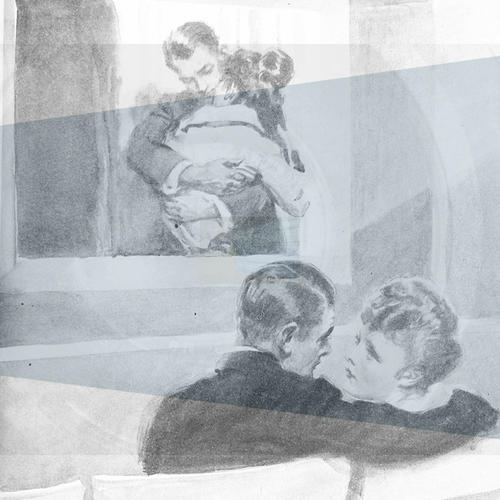Research Focus: Genre and Affect
Research Focus: Genre and Affect
In order to describe metaphor as a paradigm for the poiesis of viewing films, we developed an approach to describe cognitive processes of constructing meaning as forms of bodily experience. Within the context of our first research focus, it became visible how forms of representation and symbolization are deeply rooted in the realm of affect. We then wanted to take a closer look on the relation between the poiesis of viewing films and the discourse of audiovisual images in an area that allows us to continue our discussion of theoretical cognitivist positions. Thus, we concentrated on theories of affect from which we could systematically re-evaluate the concept of genre.
Our main hypothesis was that the affective dimension of audiovisual images concerns generic forms of a feeling that may be communicated collectively and manifests itself in diverse expressive qualities. Following this hypothesis, it became invalid to think of genres as taxonomic varieties of texts, or to deduct them from historical descriptions. In addition, it became clear that affect could not be understood in terms of individual psychological sensitivities but as a dimension of collectivity.
We discussed these questions and hypotheses with renowned international scholars in the field of film studies. Together with our fellows Christine Gledhill, D.N. Rodowick, Robert Burgoyne, Warren Buckland, and Erica Carter, we examined theoretical approaches towards audiovisual affect and cinematic genres and also elaborated on methodological questions. Most importantly, we determined how established theories of genre could be related to our approach. In doing so, our goal was to define the limits of certain theoretical notions and also to confront incompatible approaches.
As a result, our underlying hypotheses led to a model of genre cinema that can be understood as a system of different expressive modalities addressing viewers in an affective manner and opening up a commonly shared space of feeling. From this point of view, genre films make us experience the diverse ways we are affectively connected with the world, and with those we share it with. Hence, filmic images are interventions into the dynamics of affectively grounded communities.
When discussing the connection of genre and affect, as conceived of in the field of cultural studies, it became clear that the relation between audiovisual images and collectivity is not to be understood in the sense of a text-context-dichotomy. With our approach towards genre and affect, we established two notions to convey our theoretical and methodological desideratum. Both, the concept of appropriation as well as our analysis of historical and cultural communities of taste can be described as a paradigmatic effect of the poiesis of viewing films. It became evident that the poetological question how films relate to each other has been fathomed with political terminology: community and subjectivity, dissidence and hegemoniality. This nexus became the starting point for our following research focus, Poetics and Politics.
The results of our research focus have been published in the following volumes of our Cinepoetics book series:
Hermann Kappelhoff: Genre und Gemeinsinn. Hollywood zwischen Krieg und Demokratie (2016)
Hermann Kappelhoff: Front Lines of Community. A Postscript to Hollywood War Cinema (2018)
Eileen Rositzka: Cinematic Corpographies. Re-Mapping the War Film through the Body (2018)
Hauke Lehmann: Affektpoetiken des New Hollywood. Suspense, Paranoia und Melancholie (2016)
Sarah Greifenstein: Tempi der Bewegung – Modi des Gefühls. Expressivität, heitere Affekte und die Screwball Comedy (2019)
In addition, there will be a third edition of our online journal mediaesthetics concerning this research focus (to be published in fall 2018).
